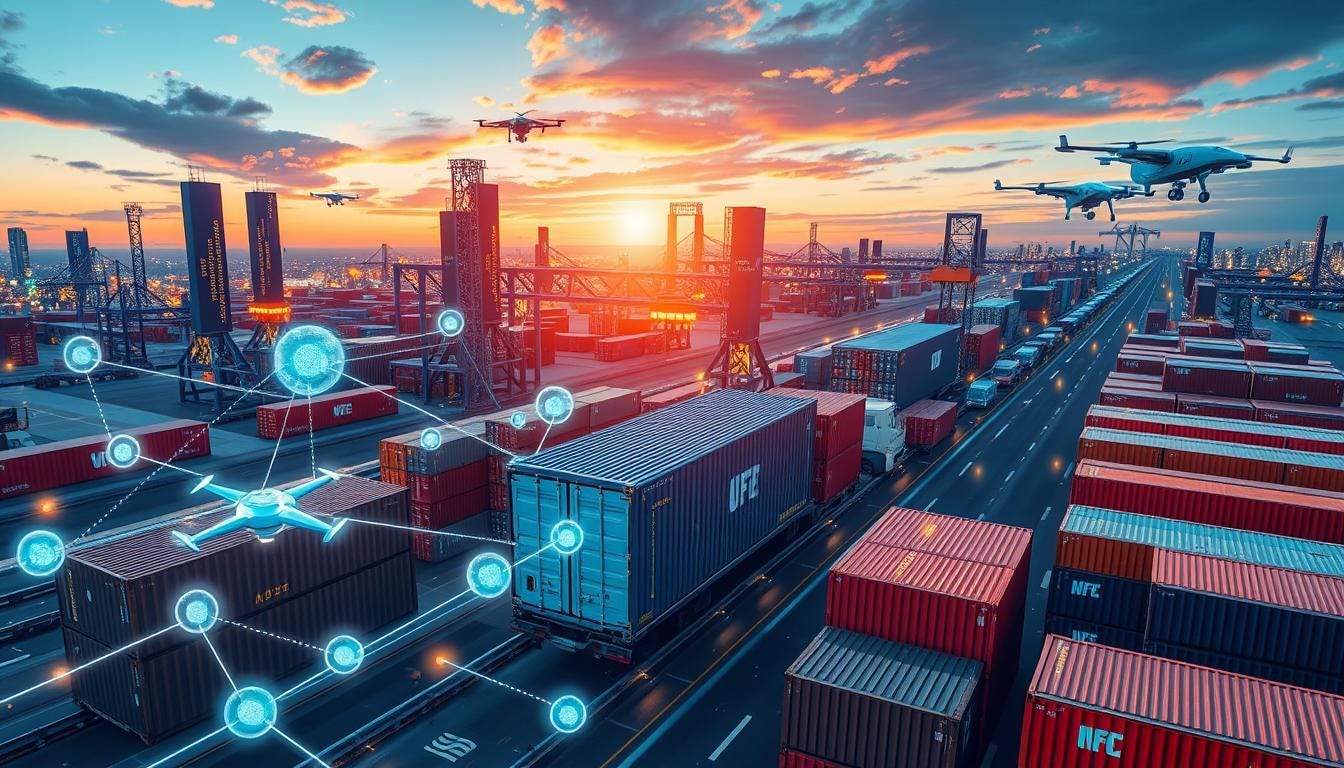Blockchain's Impact on Supply Chain Management 2024
The COVID-19 pandemic showed us how important good supply chain management is. People and companies wanted better ways to be open, track things, and work better together. Blockchain technology is changing the supply chain world. It makes sure transactions are safe, open, and can't be changed.
This article will look at how blockchain is changing supply chain management in 2024. We'll talk about big challenges and share real examples.
Key Takeaways
Blockchain technology can enhance visibility, traceability, and trust among value partners in global supply chains.
Blockchain solutions offer benefits such as reducing the risk of unethical sourcing and improving visibility.
Automation of supply chain processes through smart contracts can lead to substantial cost savings and improved efficiency.
Blockchain technology enhances transparency, traceability, and compliance verification, particularly crucial in sectors like food and pharmaceuticals.
The future outlook for blockchain in supply chain management is positive, with increasing recognition of its advantages.
The Impact of Blockchain on Supply Chain Management in 2024
Blockchain tech is changing supply chain management a lot. It brings many benefits like more transparency and better tracking. We will see big changes in how companies manage their supply chains in 2024.
Enhancing Supply Chain Transparency and Traceability
Blockchain keeps a record of every transaction that can't be changed. This lowers the chance of fraud and mistakes. It lets us track products in real-time, giving everyone a clear view of where things are.
For example, Walmart and IBM are working together. They are making it easier to track food from farm to store. This helps prevent contamination.
Blockchain also makes the supply chain safer. It's hard for bad actors to mess with data. Companies like De Beers use it to make sure diamonds are sourced ethically.
Streamlining Supply Chain Operations
Blockchain uses smart contracts to make things run smoother. These contracts do things on their own, without needing middlemen. This saves money and makes things more efficient.
Maersk and IBM have created TradeLens. It's a platform that tracks cargo containers in real-time. This gives everyone up-to-date info on where containers are and what's happening with them.
Blockchain can also help with things like keeping track of inventory and settling payments. It works well with other new tech like IoT and CPS. This makes supply chains better and cheaper.
Companies are getting stricter about where products come from and how they affect the environment. Blockchain helps solve these problems. It keeps a permanent record of transactions and lets us track things in real-time. This makes supply chains more open and efficient.
Blockchain Supply Chain Innovations and Case Studies
Blockchain has changed how we manage supply chains. Big companies in many fields are using it to solve old problems. They're making their operations better. Let's look at some great examples of how blockchain is changing supply chain management.
Walmart and IBM are working together. They use blockchain to track food better. This helps find and fix food safety problems fast. It's also helping fight fake drugs, which are a big problem.
De Beers is using blockchain to know where its diamonds come from. This makes sure diamonds are mined right and not from bad places. It builds trust in the diamond supply chain.
Maersk, a big shipping company, is also using blockchain. They worked with IBM to make TradeLens. It helps track cargo better, making shipping more open and efficient.
These examples show how blockchain can change supply chain management. It helps companies work better together and share information safely. This makes supply chains more open and reliable.
Blockchain is getting even better with new tech like AI. The future of supply chains looks very promising. Blockchain is making a big difference.
Conclusion
Blockchain technology is changing the supply chain in the United States. It makes things more transparent and efficient. This helps solve old problems like fake products and hard-to-follow supply chains.
Companies that use blockchain will lead in the global supply chain. They will be ahead of the game.
Blockchain's growth is expected to be huge, reaching $39 billion by 2025. This shows a bright future for blockchain in supply chain management. As it grows, we'll see more ways it helps build trust and makes things better.
Businesses can make their supply chains better with blockchain. They can save money and track things easier. Leaders like Walmart and IBM's Food Trust network show how it works well.
As more companies use blockchain, the future looks bright. We'll see a more efficient, safe, and clear supply chain for everyone.
FAQ
What are the key benefits of blockchain technology for supply chain management?
Blockchain helps a lot in supply chain management. It makes things more transparent and traceable. It also makes operations smoother with smart contracts.
How can blockchain improve transparency and traceability in the supply chain?
Blockchain keeps a record that can't be changed. This lowers the chance of fraud and mistakes. It lets everyone see where products are, from start to finish.
How can blockchain streamline supply chain operations?
Smart contracts on blockchain make things faster and cheaper. They cut down on middlemen. This makes the supply chain more efficient and cost-effective.
Can you provide some real-world examples of blockchain being applied in supply chain management?
Yes, many companies use blockchain in their supply chains. Walmart and IBM track food products together. De Beers knows where its diamonds come from. Maersk and IBM have TradeLens for tracking cargo.
What is the future outlook for blockchain in the supply chain industry?
Blockchain is changing the supply chain for the better. It solves problems like lack of transparency and security. As it grows, we'll see more ways to make supply chains better. Companies using blockchain will lead in a more open and connected world.





